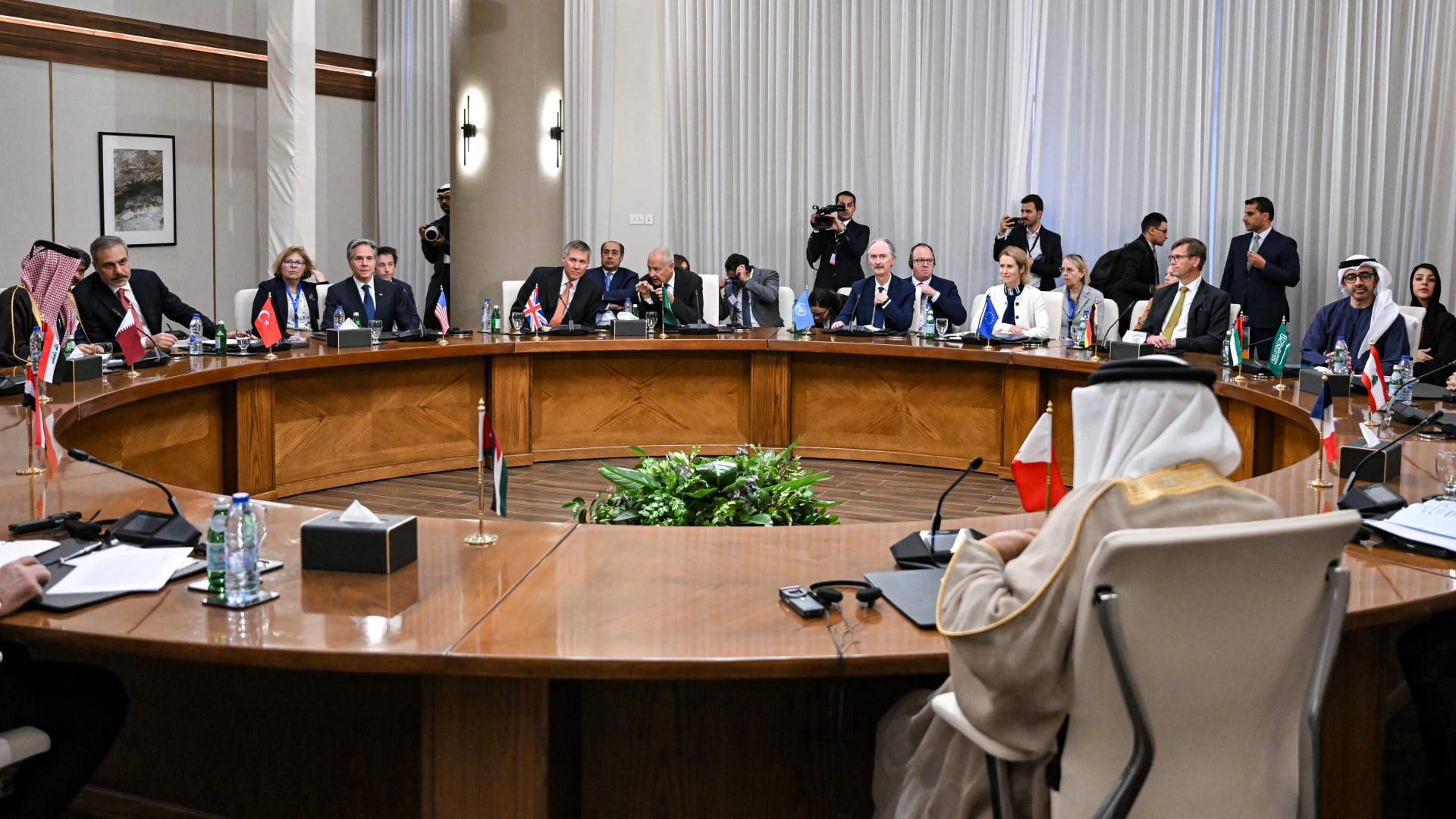On Saturday, the foreign ministers of Jordan, Iraq, Saudi Arabia, Egypt, Lebanon, the UAE, Bahrain, and Qatar concluded their meeting in Aqaba, southern Jordan, calling for a peaceful political process in Syria under the auspices of the United Nations and the Arab League.
In their final statement, issued in the presence of the Secretary-General of the Arab League, the ministers agreed to “support a comprehensive, Syrian-led and Syrian-owned peaceful political transition process, involving all political and social forces, under the sponsorship of the United Nations and the Arab League, in accordance with the principles, objectives, and mechanisms of UN Security Council Resolution 2254.”
“Inclusive governing body”
The ministers endorsed the “formation of an inclusive transitional governing body, based on Syrian consensus,” facilitating the transition to “a political system that meets the aspirations of the Syrian people across all its components, through free and fair elections supervised by the United Nations.”
They emphasized the “need to respect the rights of the Syrian people in all its components without any discrimination based on ethnicity, sect, or religion, ensuring justice and equality for all citizens.”
Ayman Sousan to Syria TV: Bashar al-Assad Was a Drug Network Leader, Was Indifferent to the Arabs
The statement also highlighted the necessity of “commitment to strengthening counter-terrorism efforts and cooperation in combating it, as it poses a threat to Syria, regional security, and the world, making its defeat a collective priority.”
The ministers further stressed the importance of “preserving Syria’s state institutions and protecting the country from sliding into chaos.”
Condemnation of Israeli Incursions
The ministers condemned “Israel’s incursions into the buffer zone with Syria and the adjacent sites in Mount Hermon, as well as Quneitra and Damascus countryside,” describing it as “blatant occupation and a violation of international law.” They called for the “withdrawal of Israeli forces” and denounced “Israeli airstrikes on other areas and facilities in Syria.”
They affirmed their intention to engage with “international community partners to form a collective stance supporting Syria in its efforts to build a future that the Syrian people deserve.”
European Countries Preparing to Reopen Embassies in Damascus
Separately, a senior European official told Turkey’s Anadolu Agency that several European Union countries are planning to reopen their embassies in the Syrian capital, Damascus. He noted that the EU is closely monitoring developments in Syria following the fall of Bashar al-Assad’s regime.
The official affirmed that the European bloc remains committed to the principles of preserving Syria’s territorial integrity and forming an inclusive government representing all segments of society and protecting minorities. He stated that the EU is ready to support a political solution that guarantees the country’s independence and sovereignty, emphasizing that Syria’s future must be decided by the Syrian people.
Michael Unmacht, the EU’s representative in Syria, described the fall of Bashar al-Assad’s regime as “a pivotal moment in the history of the Syrian people, who have long suffered oppression and shown extraordinary resilience in pursuing their demands.”
In an interview with Syria TV, Unmacht emphasized that “the next phase requires comprehensive dialogue among all parties to build a future that ensures the participation of all components of Syrian society.”
This article was translated and edited by The Syrian Observer. The Syrian Observer has not verified the content of this story. Responsibility for the information and views set out in this article lies entirely with the author.


